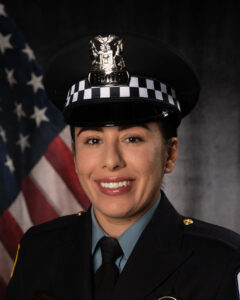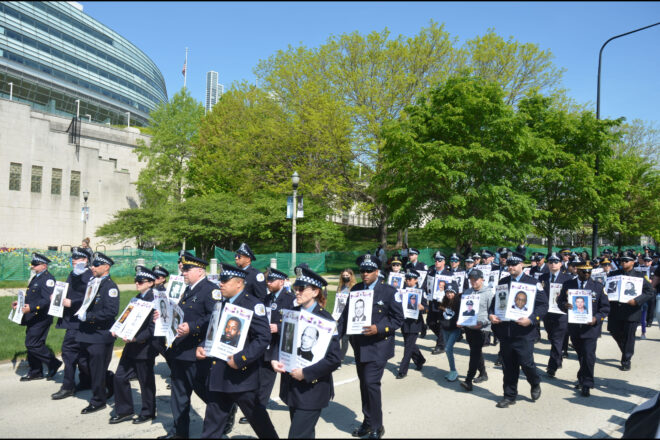In this section we provide access to the published videos from Secure 1776. We examine core topics related to the field of public safety, with a focus on policing. Our comprehensive leadership series examines the challenges of the sworn oath, all-levels responsibility, and command. Three videos have been published thus far. Additional videos are forthcoming.
Leadership Series Video Index
Join the discussion by posting a comment or sharing this video series.
Other Videos
From time-to-time, we will produce and release videos in support of events and conferences that Secure 1776 will be presenting. Those promotional videos provide a glimpse into the content of our courses.
Leadership Series – Introduction
There is a public safety crisis in America. Leadership at all levels is required to strengthen the police-community relationship that is vital to building safer and stronger communities. As a profession, it is essential that police agencies fully reawaken their community policing roots, and engage in active problem-solving directly with community residents and stakeholders. But police executives must also strengthen the internal relationship within their own departments among their officers. Here an introduction to the upcoming video series.
Our published videos are available via Rumble. You can share the series and the “An Introduction” video with your Rumble associates. Please leave a comment below or on Rumble.
[Return to video index] [Jump to Social Media and Comments Section]
Leadership Series – The Oath
Policing has always been a challenging profession, carrying with it many risks for those who take the oath and commit to serving. Taking the oath is the simple part. Keeping the oath is the most important part – the very challenging part. There is a public safety crisis in America and those forces that have deliberately sought to weaken the police-community relationship have made the nation less safe.
As a profession, it is essential that we acknowledge four fundamental truths about policing in America. First, all police officers volunteered to serve in the role. Second, the individual stakes for our officers are high, as the words “we” and “if” were not within the oath that they swore. Third, in swearing their oath, each officer committed individually to lead by example within the profession, and to be a leader in the community that they serve. Fourth, these are exceptionally challenging times for the nation and the public safety profession.
Police executives must both strengthen the internal relationship within their own departments, and advocate for their officers with their elected officials and civic leaders within the community. Watch “The Oath” and then join the discussion below.
The deepest and most visible evidence of the commitment of America’s police officers is documented on the Officer Down Memorial Page. On the day after this video was posted, Police Officer Ella French was murdered on the streets of Chicago while conducting a vehicle stop (End of Watch: 7 August 2021). Her partner was critically wounded. For further analysis on this tragedy, read our related post. [Photo: Chicago Police Officer Ella French]
Across America, more than 25,000 law enforcement officers have died in the line of duty defending the Constitution and protecting their communities. Lives lost and lives taken while those officers were keeping their oaths. “Greater love has no one than this: to lay down one’s life for one’s friends” (John 15:13, NIV).
Our published videos are available via Rumble. You can share the series and “The Oath” video with your Rumble associates. Please leave a comment below or on Rumble.
[Return to the video index] [Jump to Social Media and Comments Section]
Leadership Series – All Levels Responsibility
Most often, when we first think about the topic of leadership, we make an immediate association with a person holding a formal position or title. This is often described as positional leadership. Fully understanding “leadership” requires us to understand that the responsibilities of leadership are not limited to those holding a position of authority. Fundamentally, leadership is about persuasion. Those “in leadership” must understand that, to succeed, they must strengthen the leadership abilities of those they lead.
In fact, the best positional leaders, draw upon their own informal (or relational) leadership abilities, and they do not rely upon the power of their rank alone to get others to act. They inspire. However, leadership is more than ability to give an inspiring speech. Leadership is more than words – it is the full expression of all of our actions.
The best leaders also draw upon the informal leadership displayed by others surrounding them, and from those they formally supervise. This builds from a fundamental truth – in life, none of us can do absolutely everything ourselves. This is true for the newest police officer, and for the chief of police.
Highly-effective organizations are comprised of highly-effective individuals that are performing at all-levels within the group. Each individual officer – for their part of the mission – is the “key piece of the puzzle” that makes it all work. It is a responsibility of those holding formal leadership positions, to help everyone within their organization understand this core principle. In policing, leadership is an all-levels responsibility.
Our published videos are available via Rumble. You can share the series and the “All Levels Responsibility” video with your Rumble associates. Please leave a comment below or on Rumble. Learn more about this important topic by encouraging your agency to schedule of our training course “Leadership is an All-Levels Responsibility.”
[Return to video index] [Jump to Social Media and Comments Section]
Readings Related to Our Published Videos
Our Leadership Video Series draws upon key concepts, relating to policing and the current public safety crisis, from our independent research and analysis efforts published in research journals and professional publications. Learn more by going to the “Our Published Articles” section.
Additionally, join the discussion among Secure 1776 subscribers and guests, as we analyze current events and research impacting public safety in our “In the News and Research” section.
[Return to video index] [Jump to Social Media and Comments Section]

Copyright Protected | (c) 2022 Secure1776.us – All rights reserved.



Great intro to a topic that truly needs to be analyzed and discussed. An actual partnership with the community is an essential part of policing. Unfortunately for many larger departments, community policing devolved into “giveaways” rather than problem solving and relationship building. Free backpacks when school starts, presents at Christmas, pizza parties, candy on Halloween…. thats what community policing became in many cities. During the Floyd riots of 2020 we saw how the relationships between police and some communities lacked depth. Police were attacked and squad cars were vandalized. We learned that in many cases the relationship with the community was one sided. Looking forward to additional videos on this important topic!
As someone who has worked with you and been a student of your leadership lectures, I am looking forward to the upcoming series. In order to see long-term success in crime reduction, I agree that we need to re-engage the community and get away from being viewed as an occupying force.
A great video on the importance of the oath. In the current climate, it seems police officers are the only ones in the criminal justice system who actually obey their oath of office and “support and defend the Constitution.” Increasingly DA’s are failing to prosecute offenders after they’ve been arrested. When offenders are charged, liberal judges make obtaining convictions difficult. Those who are convicted are increasing being released back into the community with unmonitored ankle bracelets. The system is broken. All of this leaves officers feeling unsupported. Fixing the problem beings at the top. Police department leaders need to distinguish between mistakes and misconduct. While misconduct requires discipline, mistakes require training. Despite all the obstacles, the overwhelming majority of police officers work hard and sacrifice much to uphold “the oath”.
Thank you for the feedback. As far as your assessment of the rest of the criminal justice system – amen. The world is a better place when all of those in positions of trust and authority remain true to their oaths. We are seeing the consequences of what happens when they fail to uphold their oaths. In an upcoming video in the series, the difference between a mistake and actual misconduct – and the need for leaders to respond differently to a mistake – will be a topic. Stay tuned.
Locally, the goalposts have been moved so much I truly believe our officers don’t know what is expected of them anymore. They’ve been turned from aggressive protectors, guardians & crimefighters to landscapers, community cleanup crew members & pawns used at community giveaways in an experiment to rebuild some sort of broken trust in communities that don’t seem to appreciate or want them there. I once worked for a man who constantly told us “remember, you took an oath” and that is something that really does need to be reminded. At the end of the day no matter how trivial or mundane your current assignment you can always make an impression on someone just be remembering the oath you took & doing the right thing whether the elected officials appreciate it or not.
Amen. Keep the faith. Thank you for your efforts. You are having a positive impact.
The four fundamental truths–AND the fact that following the oaths WE swear is not predicted on others following theirs–absolutely!